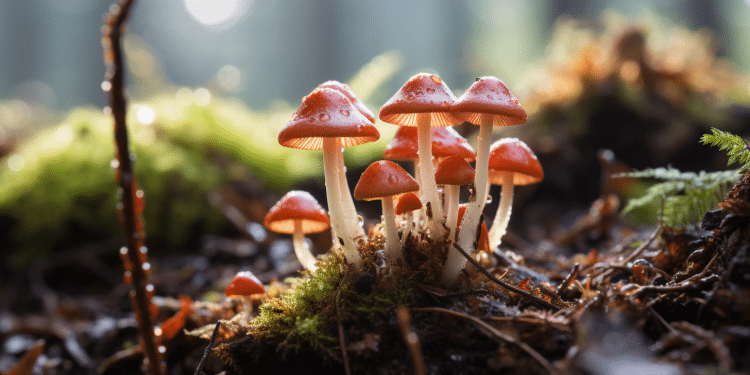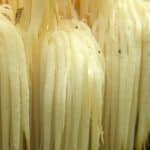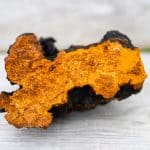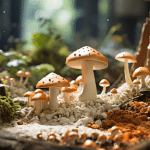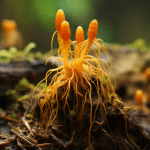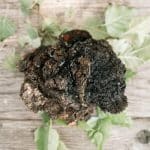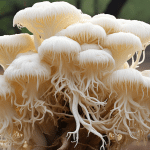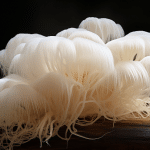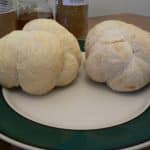New to growing mushrooms and looking to learn more about growing mushrooms for beginners? You’re in the right place.
If that is the case, then you might be a bit puzzled, and that is completely understandable. There is an enormous amount of information out there that is hard to try and digest and understand.
Terms like inoculation, agar transfers, laminar flow, what does it all mean. and which one of these things I actually need to know.I just want to get my hands on some mushrooms!
Do not worry, because, if you actually get into the hobby of growing mushrooms, this all makes perfect sense before you know it. For now, take a look at some of these awesome tips that can help you get started.
Begin With Mushrooms Grow Kits
The easiest way to get started growing mushrooms is definitely using a grow kit. This introduces you to the process, and allows you to understand what mushrooms require in order to grow. You will also be introduced to the appearance of healthy growth, the appearance of the mycelium, and will provide a pretty good understanding of the mushroom lifecycle.
There are many kits available on the internet, and they are generally oyster mushrooms. I used this one previously, and the results were quite good! Check out the reviews and the success that others have had using the different kits out there to determine which you’d like to start with. There are other species’ kits out there, like Lions Mane or Reishi, but an oyster mushroom kit is likely to be your best choice when starting.
Read Books on Cultivation
Maybe this is kind of old-school, but you can still hard-knock the value of a well-written, thorough book. Learn from the trials and tribulations of the grow experts, and you can avoid going down a path of growing techniques and experiments that simply won’t pan out. Paul Stamets, Grow Mushrooms for Food and Medicine remains the most complete guide on growing mushrooms, focusing primarily on commercial, large-scale farming.
That is, the knowledge from that book is easy to translate into techniques to grow at home. Learn more about the book by checking it out on Amazon. If you are looking for something a bit more accessible and easy to digest, I suggest checking out The Essential Guide to Growing Mushrooms, by Steven Russell. This book is perfect for the novice grower looking to learn a few skills to start growing at home. It has plenty of step-by-step instructions, and is loaded with useful pictures.
Find a Community | Growing Mushrooms for Beginners
There are thousands of people learning how to grow mushrooms at home, so why not give it a shot and get in touch. Check out some online groups, like the Mushrooms Growers subreddit on Reddit. There are tons of helpful people there, ranging from newbies to experienced growers, all eager to share. Post pictures of your grows, ask questions, and share your experiences.
I guarantee that connecting with others will truly accelerate your learning. Another option is to find a local mycological society. There are thousands of such groups all over the world, and very likely one in your local area.
Connecting with actual people in your community can be a great way to get truly immersed into a hobby. They will provide you with high quality info and they have great content and even sell grow kits.
Finding The Right Equipment
Having the right tools for the job makes a big difference. Growing mushrooms requires certain techniques and tools that usually simply cannot be replaced by improvised alternatives.
Once you have learned how to grow and you have learned what works, then you can begin to research and come up with your own ways to get things done. When you are starting, however, you are best off sticking to what is known to work. I tried everything when I was just starting to get growing.
Maybe I did not actually need the pressure cooker, I could just sterilize it in my normal crock pot.
Getting the correct gear (and using known techniques) can save time, money, and lots of frustration.
What’s Your Goal With Cultivating Medicinal Mushrooms?
What you are trying to grow? Why are you interested in growing? For personal use? Would you like to sell commercially to restaurants and supermarkets someday? There are many different paths that can lead to becoming a mushroom farmer. You can learn how to grow outdoors, so that a couple times per year you will get some fresh mushrooms, or you can go all in and have a working laboratory and large growing space with more fresh mushrooms than you know what to do with. Do you just want to grow for fun, or is this something that you want to pursue as a business. Having a purpose sets you up for success.
It helps you to decide which techniques you should study, where to invest time and money. If you do not have any ideas, I suggest learning one full-on technique using one species of mushrooms. For instance, learning how to grow oyster mushrooms on straw starting from spawned grains, teaches a lot of skills you can transfer over to other growing techniques. Learning how to grow Shiitake mushrooms on sawdust is a bit trickier, but you will learn some additional skills along the way.
Start with your target in mind, and go for it!
Go On A Hike To See Mushrooms Growing in The Wild
Observing how mushrooms grow in the wild can be extremely useful to novice and experienced growers alike. Most cultivated techniques in a lab come from emulating a mushrooms natural lifecycle, as well as trying to optimize it for specific conditions. Mycology is an exciting topic, and forests are the best place to experience it.
So go out into the wild and take a peek at what is going on around you. Once you start to really start paying attention, you will be surprised how much mushrooms are out there prominently in the woods.
Start Anywhere
I think the biggest advice to newbies is just start. Get the kit, or jump into it anywhere that feels right for your level of growing experience. Pick a method and get started growing mushrooms today!
The best part of learning how to grow mushrooms is the journey. I am still learning more every day, and do not see this changing anytime soon.
You can find our favorite capsules, powders, gummies, and other products on the following pages of our website and learn more about each individually:
Additional Resources:
